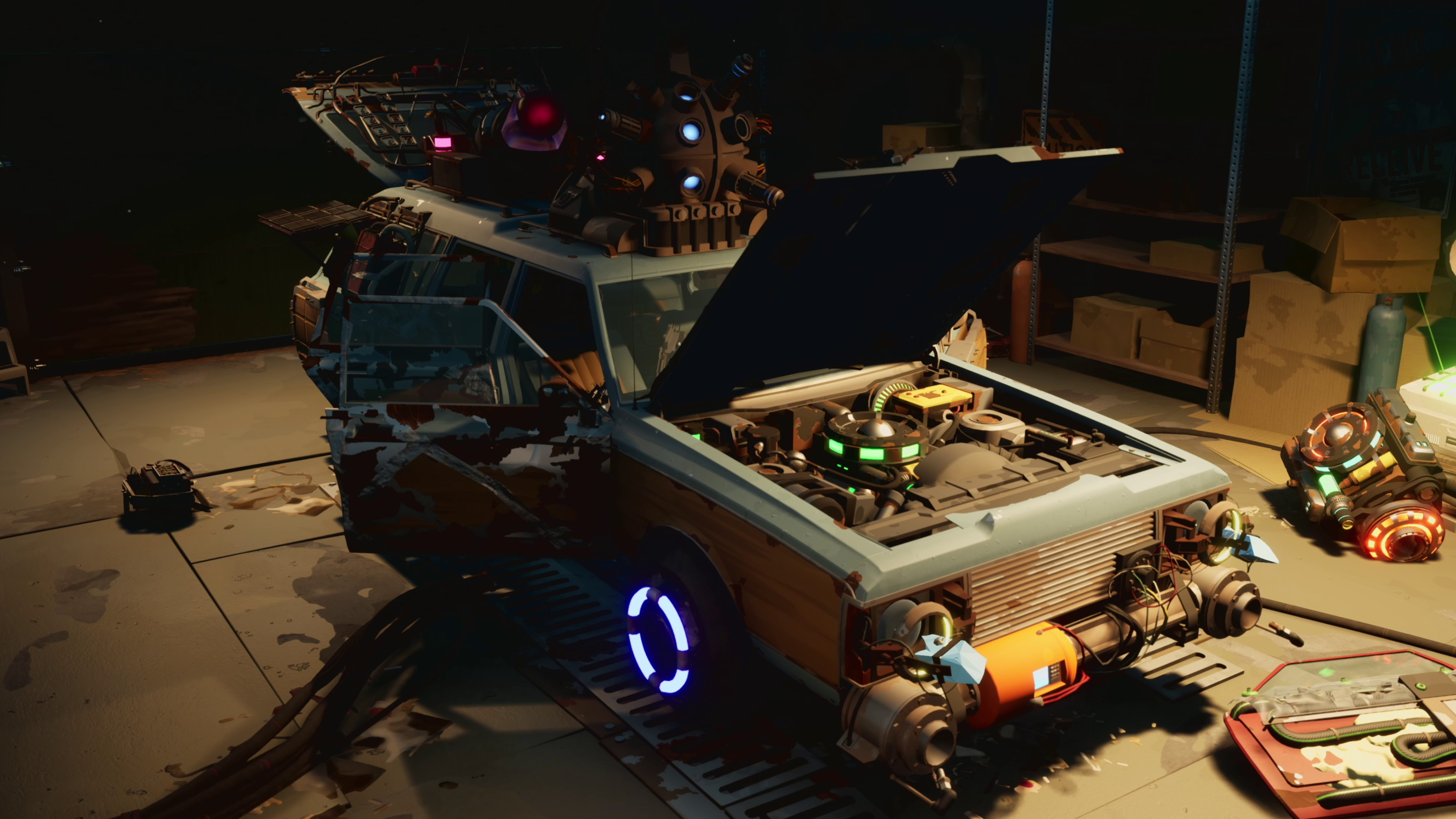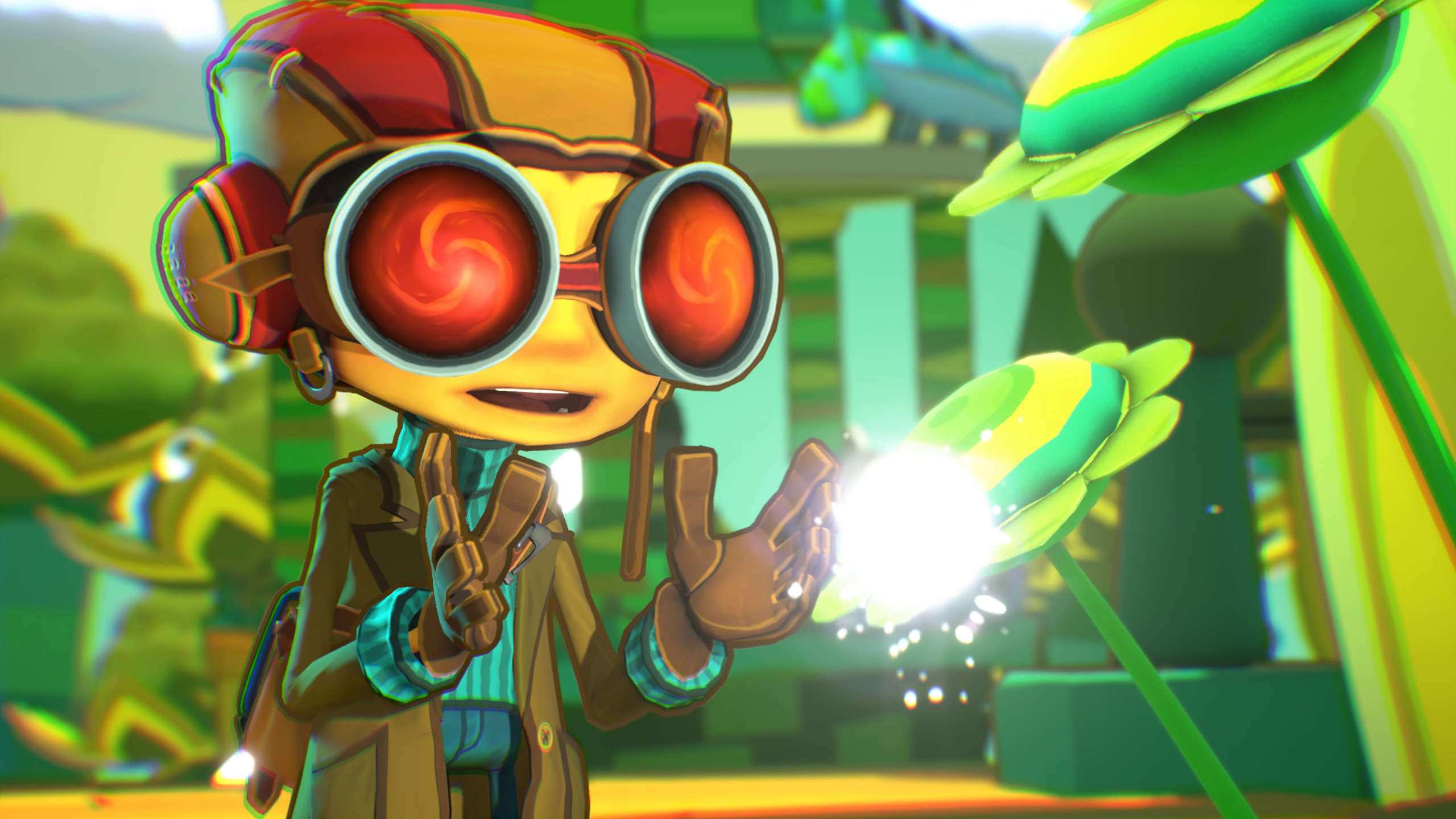
Your station wagon is your best friend as you explore and survive a deadly exclusion zone in survival roguelite Pacific Drive.
One of the best things about being a fan of survival games is that they’re not all about chopping down trees and hunting rabbits with a bow and arrow. Survival games span all sorts of different genres—just coming up in 2023 alone there’s city builder Frostpunk 2, horror sandbox Sons of the Forest, and even co-op fantasy base-builder The Lord of the Rings: Return to Moria.
But if there’s one survival game coming this year that’s really captured my interest by merging into yet another genre, it’s Pacific Drive, the “driving survival game” from Ironwood Studios. In Pacific Drive your car is your only companion, and you steer it deep into a restricted area of the Pacific Northwest known as the “exclusion zone,” which has fallen into chaos due to bizarre government experiments.
Since we first got a quick look at its teaser trailer last year, I’ve been dying to know more about it. Today, Ironwood Studios revealed an extensive new trailer (you can watch it above) showing more of the zone, the intimidating anomalies you’ll have to contend with, the trusty station wagon you’ll use to navigate them, and the garage that serves as your home base. Better yet, Ironwood Studios invited me to a hands-off gameplay preview last week to learn even more.
Drive to survive
Pacific Drive is a run-based roguelite (or “road-lite,” as the developer calls it). Starting in your garage at the edge of the zone, you pick a location on your map, explore it in your car, hop out to walk around on foot and gather resources, and then return home to resupply and make repairs and modifications to your wagon before your next run. More locations appear the deeper you travel into the zone, and the map at your base eventually becomes a network of routes, discovered locations, and areas of interest labeled with ever-intriguing question marks.
And it looks wild out there in the exclusion zone. Even in just the one location I saw during the preview, the anomalies were coming at the car nearly non-stop. There are floating boulders that can be rammed out of the way with your bumper, upheavals from the pavement that pop up like jagged stone bollards, gravitational warps that send your car sailing through the air, crackling electrical barriers that disrupt your electronics, and jagged metal monsters that latch onto your car like magnets and start chewing on it.
As far as dealing with these threats, putting the pedal to the metal and weaving around them typically looks like your best bet, but there are plenty of times you’ll need to get out of your car and handle things up-close and on foot. You’ll need to repair the damage your car has sustained with a blowtorch, swap flat tires with the spares in your trunk, and cut off the jagged entities chewing on your car with an enormous buzzsaw. All this might be happening during a tremendous thunderstorm, during a spooky dark night, or while more anomalies are bearing down on you.
That same buzzsaw can be used to harvest scrap metal from other wrecked vehicles you come across in the zone. As you leave your car and investigate small, rundown buildings like gas stations, you’ll discover new crafting recipes and blueprints you can use to make your car more effective at exploring the zone. And to piece the story of the zone together you’ll find notes, audio logs, and even communicate with other characters who will help you with your ultimate goal: to find an escape from the bizarre landscape you’re trapped in.
The world isn’t one big open world map but is broken into chunks. And when you’re done checking out exploring a portion of the map (or the trunk of your car is simply too full to carry anything else) you return to your garage by finding an “anchor”—a power source that can open a gateway to teleport you back to your base.
The cool thing about these gateways is that they don’t appear right in front of you, but open up elsewhere on the map, the location made visible by a giant skybeam in the distance. And boy, does opening a gateway make the zone angry. A destructive storm builds up and then closes in, similar to the closing circle in a battle royale. Exiting the zone is a race against time, as you speed through the hostile weather and angry anomalies with the crimson storm closing in on you from all sides. It looks terrifically exciting.
Home sweet home
The other half of Pacific Drive, and one that looks almost as much fun as racing a station wagon through the apocalypse, takes place in your home base, the charmingly dingy garage where you can work on your car. Convert resources into scrap metal, make repairs, craft and attach upgrades, and deck out your wagon with extra armor, a spotlight on the roof, and sci-fi gizmos to make the next run safer and more effective.
The possibilities look nearly endless as you can see in the trailer, where the car is covered with bits of new structural support, sturdier tires, glowing hubcaps, improved gas tanks and storage, and all sorts of other chunky bits and bobs.
Fiddling with your station wagon looks weirdly relaxing, and in the preview I saw the developer pull almost the entire car apart, piece by piece, removing the hood, doors, lights, and grill, and then put it all back together again. But cobbling upgrades onto your car isn’t the only thing you’ll do in your garage. At certain times you might realize your car is acting strangely, and you’ll need to diagnose it to find out why.
Quirky cars
My first car was a 1981 Plymouth Horizon hatchback, and as with most clunky old used cars it had its share of quirks. For one, if I turned on the air vents while it was snowing, snow would actually come blasting from the vents, giving me a mini-blizzard inside the car. And the door handles kept failing, one by one, until the only way I could enter the car was through the rear passenger door. It made for an embarrassing way to pick up dates and take them to dinner. “So, yeah… we just need to climb in through the back and then over the seats.”
Your station wagon in Pacific Drive will develop quirks as well due to exposure to the exclusion zone. These quirks sound far more severe than the ones my old Plymouth used to have, but in Pacific Drive you have the option to diagnose and fix them while tinkering in your garage. I asked the team at developer Ironwood Studios what sort of quirks the station wagon in Pacific Drive can become stricken with. While they weren’t sure which quirks would be in the finished game, they were willing to tell me about some they had experimented with during development.
“There was one where your horn honked when you turned your wheel,” said Alex Dracott, Ironwood Studios founder and creative director, as the other team members laughed. “That was one you fixed really quickly.”
“I love when [the quirks] chain together,” said Seth Rosen, lead gameplay designer. “So you could have: your horn honks when you turn the wheel. And you could have: when your horn honks, your door falls off.” There were more laughs from the team.
“We’re still in the stage where we’re experimenting, so I can’t promise those examples will ship,” Rosen said. “But we’re having fun with the modular approach of having conditions and behaviors and smashing those together, and being surprised ourselves by what shakes out from that.”
The brief preview of Pacific Drive has me more eager than ever to sit behind the wheel and speed through the zone, and to unwind in the garage while tinkering with my ride. Unfortunately we still don’t know the release date other than the vague “2023,” but in the meantime the driving survival game now has a page on Steam. Hopefully you can click on it without your doors falling off.






